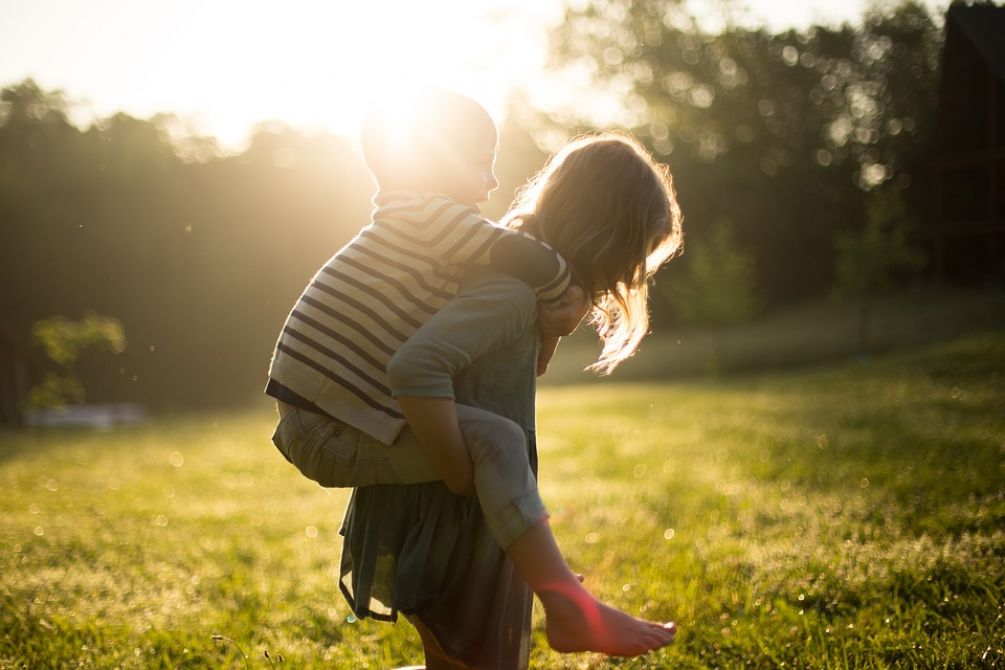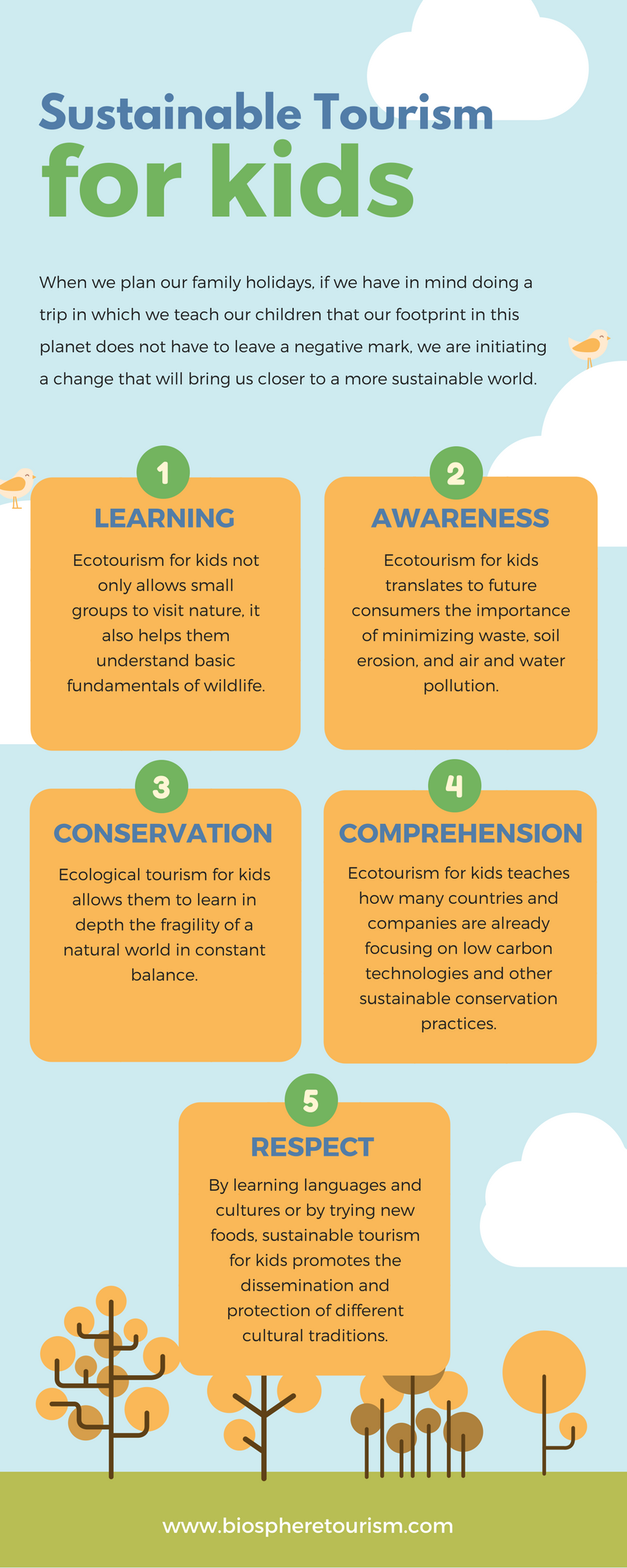When planning our family vacation, it is convenient to create a getaway where we can offer new knowledge and experiences to our kids, especially those focused on the conservation and protection of our planet.

Tourism is one of the most resource-intensive economic activities, hence its potential for being a long-term detrimental activity for the planet. However, tourism does not have to be harmful if its practices are carried out thinking at all times not to compromise these resources.
When we plan our family holidays, if we have in mind doing a trip in which we teach our children that our footprint in this planet does not have to leave a negative mark, we are initiating a change that will bring us closer to a more sustainable world. It is not only a matter of finding sustainable tourism destinations or companies, but also carrying out responsible practices wherever we go.
With a sustainable tourism offer for children that expands every year, there is no excuse for not looking for the options that best care for the planet we live in. The 17 SDG established by United Nations at a global level show us that tourism activities, in order to be sustainable, must take into account areas as diverse as gender equality, decent employment or collaboration with the local population, as well as the most important issues of environmental care, water and energy saving.
Defense and love for nature can be the best context to learn together with kids. Ecological camps, games or gymkhana are some examples. In addition to helping your children enjoy everything we experienced and knew, they can benefit from holidays based on ecotourism, as these experiences offer them opportunities of:
Learning about wildlife: Sustainable tourism for kids not only allows small groups to visit nature, but also those that are managed by qualified persons, teach the kids to understand basic fundamentals of birds, insects, animals and plants of the region and their relation to an ecosystem in balance.
Raising awareness on environmental degradation: An extremely important component of ecotourism for kids is to raise awareness to future consumers on how to minimize waste, soil erosion, air and water pollution so as not to disturb the environment - lessons that will always remain in the child’s memory and influence their future purchasing decisions.
Participating in conservation efforts: Whether by recording sea turtle behaviors or learning the destructive role of invasive plant species in the desert, eco-tourism for kids allows a deep understanding of the fragility of the natural world.
Focusing on depletion of natural resources: Whether it is learning about how countries are incorporating renewable energies or how an eco-lodge harnesses solar or wind power for its operations - ecotourism for kids teaches how the impact of tourism is affecting the sustainable development of resources and means of transport, and how many countries are focusing on low carbon technologies.
Exposure to culture: From learning new languages and cultures to tasting new foods, sustainable tourism for kids promotes the dissemination and protection of different cultural traditions and experiences that provide a lasting global vision for children.
Dedication to the cause of the environment and its preservation can have a lasting impact on how our younger generations feel more connected to ecosystems. Not only will children establish a deeper and more lasting connection to the environment they are visiting through sustainable tourism, they will learn more about how to have a more positive impact on the world. If you want to develop your own sustainable tourism activities for kids, here are some ideas for them to spend their best summer and live new experiences in a sustainable way:
